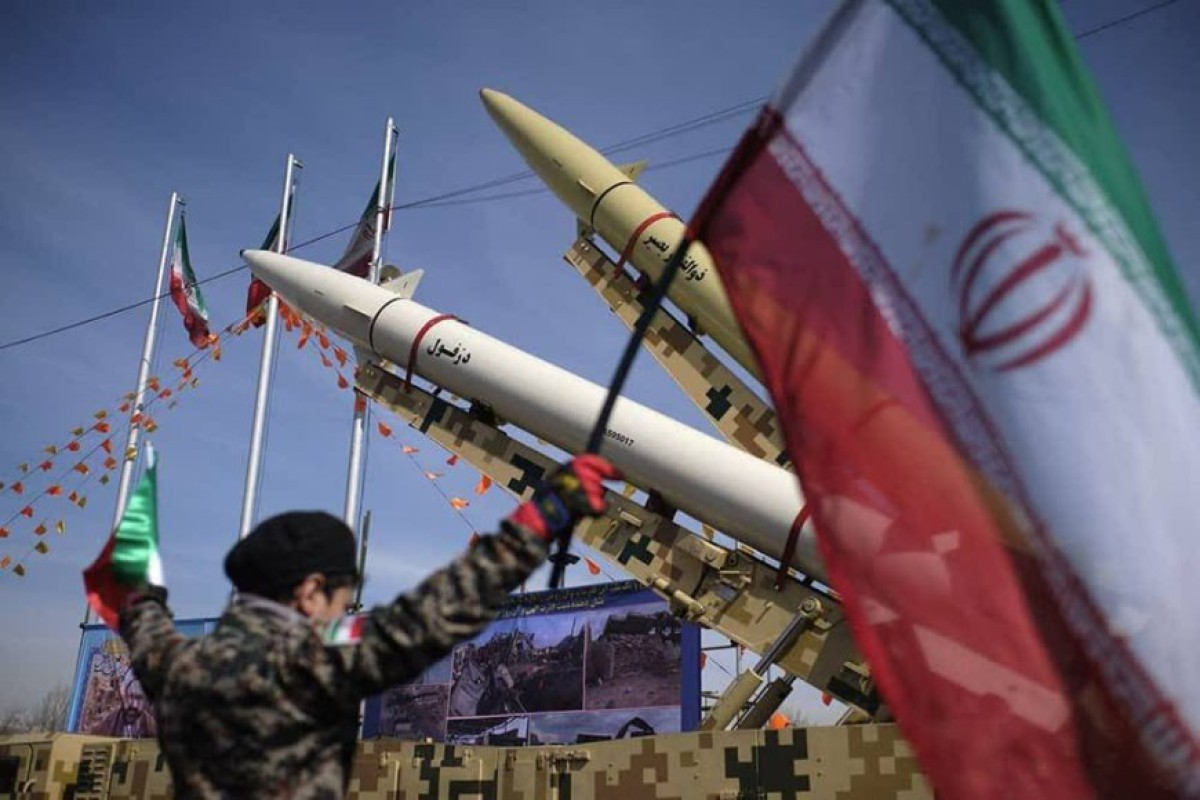 473
473
Iran's Deterrence Strategy: A Complex Web of Power and Resilience
Iran's Deterrence Strategy: A Complex Web of Power and Resilience
The Islamic Republic of Iran, nestled amidst a myriad of neighbors in a volatile geopolitical landscape, stands as a unique country facing numerous threats. Given this reality, Tehran has strategically devised a security approach that underscores deterrence, driven by its political and military alliances with regional actors and the simmering tensions with the US-led Western bloc. With an unwavering commitment to safeguarding its territorial integrity and political independence, Iran's military might, however, is solely confined to defensive measures.
By: H. Zaïm-Bashi
One particular approach employed in both diplomacy and strategy formulation is deterrence, which is the projection of military might and solid threats as a way of averting hostile action. Although military deterrence occupies a central place in Iran's national security doctrine, the pursuit of nuclear armament finds no place within Tehran's defensive calculus. Therefore, in Iranian national security policy, other vital dimensions—securing national identity being the most important among them—are assigned far greater weight.
In the context of Iranian deterrence strategy, Tehran uses its strategic position in the regional and international systems to deter military aggression by raising the costs for its enemies. To achieve this goal, Iran identifies certain key factors as crucial:
1. Geopolitical and Topological Advantages: Iran's advantageous position renders its occupation arduous.
2. Extensive Coastal Frontiers: Iran's lengthy coastlines along the Persian Gulf and the Sea of Oman, serving as vital energy hubs, amplify its defensive potential.
3. Control over the Strait of Hormuz: Iran's dominion over this critical waterway bolsters its military position.
4. Superior Military Capabilities: Iran's military prowess outshines that of neighboring states, bolstering its deterrence posture.
5. Mobilization of Population: Iran's military forces possess the ability to mobilize its populace during times of crisis, constituting a formidable asset.
6. Paramilitary Forces: The potential utilization of paramilitary forces further augments Iran's defensive capabilities.
7. Networking Capacity: Iran's adeptness in forging regional alliances enhances its strategic reach.
8. Geopolitical, Geocultural, and Geoeconomic Disruptions: Iran's capacity to disrupt the geopolitical, geocultural, and geoeconomic networks of the international system affords it a significant edge.
Two capabilities hold great significance in Iran's deterrence framework. Firstly, Iran benefits from its strategic location, which enables the establishment of networks that connect Southwest Asia, the Caucasus, the Persian Gulf, the Sea of Oman, and Central Asia. Secondly, Iran possesses disruptive capabilities that it skillfully employs to disrupt enemy networks, causing substantial harm to its adversaries. This disruptive ability is a central pillar of Iran's deterrence doctrine.
In light of unfolding developments in the Middle East, the discourse surrounding deterrence has garnered heightened attention among political pundits and strategists within Iran. While few argue for a reassessment of Iran's deterrence capabilities, advocating the attainment of comprehensive nuclear deterrence, the majority contend that the Islamic Republic's existing deterrence policy suffices. As a matter of fact, the recent threats posed by the United States against Iran and the attacks that have followed on Iraq and Syria under the pretext of retaliating against the deaths of three US troops in Jordan during recent drone strikes convey a clear message: the United States is unable to cope with Iran's deterrent might. In this regard, NBC News reported that these attacks were largely symbolic, falling short of achieving their intended objectives.
Today, it appears that any continuation of aggressive measures by the United States stems from a desire to dupe its domestic public opinion that it will not idly tolerate Iran’s military attacks. However, the latest strikes undertaken by the United States against regional nations, namely Yemen and Iraq, have only served to tarnish its international credibility, violating the sovereignty of Iraq, Syria, and Yemen in the eyes of the global public. Such transgressions may inadvertently foster a network of regional and even global deterrence against both the Zionist regime and the United States, thereby magnifying the challenges confronting them.
In this complex web of power and resilience, Iran's deterrence strategy stands as a testament to its astute navigation of a treacherous geopolitical landscape. As the Islamic Republic continues to recalibrate its defensive posture, Washington would be wise to acknowledge the intricate dynamics at play and the potential ramifications of undermining Iran's sovereignty and national interests.
 473
473
Comment
Post a comment for this article